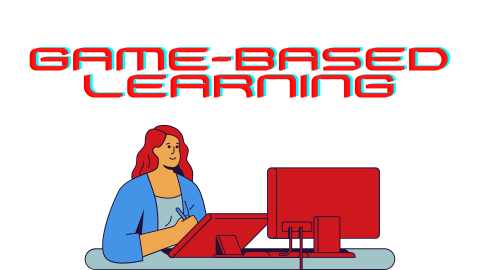During Fall 2024, the Office of Distance Learning celebrated its 50th Quality Matters course certification.
Level Up Through Game-Based Learning
Mon, 03/22/2021 - 1:54pm
Conceptually, game-based learning covers a gambit of pedagogical approaches, from employing game play to gamification.
Dr. Francesco Crocco says while game-based learning can include those elements, it starts with a course design approach that gives students three elements:
- Autonomy.
- Mastery.
- Sense of Purpose.
By designing with these elements in mind, instructors can feed students’ intrinsic motivation, making learning their goal instead of a letter grade.
Plugging in
Crocco was teaching remedial writing at City University of New York when he began looking for a new way to connect students with their course content.
“They’re paying for a course that gives them no credit, that basically tells them they’re bad writers,” Crocco says. “So the whole thing is working against me, and I had to figure out how to engage the students.”
Initially, Crocco took a straightforward approach by gamifying the syllabus, introducing points and levels. As he began to explore the concept more deeply, however, Crocco considered how to improve his assignment design to spark active learning, to empower students through choice, and facilitate collaboration.
“In the game world, they’ll call that a quest,” Crocco says. “You have all these different quests you can choose — different assignments — to earn whatever number of points you need to pass the course.”
Crocco says the key to game-based learning is applying principles of good game design to the classroom.
Changing the Game
Dr. James Paul Gee’s book, “What Video Games Have to Teach Us About Learning and Literacy,” identifies 36 learning principles embodied in successful, commercial video games, including active learning, distributed knowledge, feedback, and failing forward.
“The idea is not to create everything so high stakes that you punish failure but that you understand that failing is learning, and you reward that,” Crocco says. “If you've ever played a video game, you know what I mean. You've got to play it a million times before you can beat it."
The elements that make well-designed games engaging are familiar to anyone who’s spent time designing online courses — feedback, challenge setting to prevent both frustration and boredom, and learning through failure.
It’s a system that encourages people to become immersed in the task at hand, instead of being preoccupied with the result. That experience is most like our state of mind at play.
Play is voluntary, absorbing, and undertaken for its own sake. Crocco says when instructors create courses that mirror those attributes, learners approach the content with a different mindset.
"What the research shows is that when you introduce an extrinsic motivator, like grades, you can end up destroying their intrinsic desire to do something. That’s not what we want to do when it comes to learning,” says Crocco. “Is learning about grades, or is it about learning? Sometimes the systems we create to motivate the activity we want to see, or the behavior we want to see, ends up undermining that behavior.”
Learn more about how to take a systematically different approach to your courses during our April 8 webinar, Level-up Your Course with Game-based Learning. Register at SignUpGenius.
